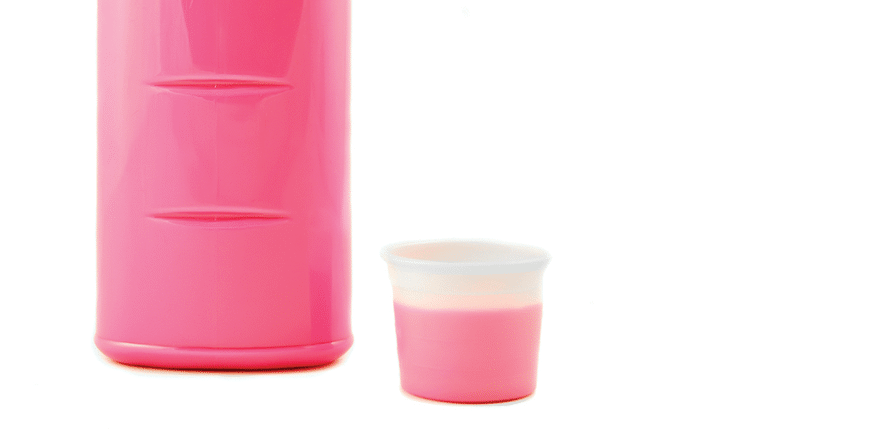
Bismuth for IBD and IBS-D
Researchers in Australia recently studied colloidal bismuth subcitrate (oral bismuth) as a possible long-term treatment for chronic, difficult to treat (intractable) diarrhea associated with some types of inflammatory bowel disease (IBD) and diarrhea-predominant irritable bowel syndrome (IBS-D).1 The researchers chose to study this product instead of bismuth subsalicyclate (the active ingredient in Pepto-Bismol®) because the latter also contains calcium carbonate, which could have its own effects on the bowel and interfere with analysis. The small study, which included just 31 patients, showed promise for this type of bismuth as an effective treatment for chronic intractable diarrhea symptoms in pouchitis, indeterminate colitis, and IBS-D, but not for ulcerative colitis or microscopic colitis. A person with IBS-D fits the Rome criteria for IBS but the predominant symptom is diarrhea.
Indeterminate colitis is a form of IBD in which physicians cannot definitively diagnose either Crohn’s disease or ulcerative colitis, the two most common forms of IBD, based on the available diagnostic tests. Some patients with ulcerative colitis and indeterminate colitis undergo surgery to remove all or part of the colon, often resulting in an opening (ostomy) typically made on the front of the abdomen below the waist, for elimination of waste from the body. For some of these patients, instead of having an ostomy, physicians can preserve some of the anal muscle and create an ileoanal reservoir (pouch) to allow an individual to eliminate waste in a way that seems closer to the normal anatomical route. Pouchitis, a complication that can arise following this procedure, is inflammation or infection of the surgically-created pouch, leading to diarrhea, cramps, and bloating.
The researchers were interested in studying oral bismuth for a number of reasons:
- Research has shown oral bismuth to be effective for helping to prevent traveller’s diarrhea and in the treatment of Helicobacter pylori-related ulcer disease.
- In addition to its known antibacterial properties, previous studies suggest bismuth could also have anti-inflammatory effects.
- Oral bismuth is poorly absorbed by the small intestine, which means most of it is delivered to the colon, exactly where it is needed for treating diarrhea.
- Much older, interesting research demonstrated that an enema therapy involving arsenical compounds showed promise for inducing remission in ulcerative proctitis, but arsenic’s toxic component does not make this treatment ideal. Arsenic and bismuth are from the same group on the periodic table.
The 31 study participants were all patients at a clinic in Australia who were intolerant or unresponsive to conventional treatments for chronic intractable diarrhea. The researchers defined intractable diarrhea as having >4 liquid stools per day and no response to primary therapy for the associated disease, loperamide, or other relevant treatments.
After four weeks of taking either 120g or 240g of oral bismuth twice a day, 23 patients had a clinical response and continued on the bismuth therapy. After a year of taking oral bismuth twice a day, 12 of these participants continued to have a sustained response. Of the 12 participants with pouchitis, 11 of them had a good response after four weeks, and 6 of them had a sustained response after one year. Of the 4 patients with indeterminate colitis, 3 had a sustained response. In the IBS-D group, 3 of the 4 patients had an initial response, and 2 had a sustained response.
This was a small retrospective study, but the researchers say its success in helping resolve the relentless diarrhea that some participants had lived with for so many years warrants further research.
Please note: Pepto-Bismol is approved for the treatment of diarrhea, including travellers’ diarrhea. This study reflects very early research into oral bismuth as a potential maintenance treatment for pouchitis, indeterminate colitis, and IBS-D, but it is not currently a recommended long-term treatment for these conditions. Even though over-the-counter medications are readily available, they are still potent drugs and you should only use them for the purposes stated on the product’s packaging or according to your physician’s instructions.















